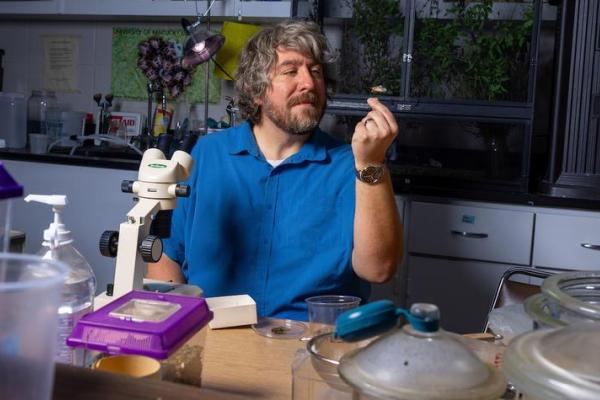UK HDI Awarded University of Cincinnati Center for Excellence in Developmental Disabilities Grant

The Administration for Community Living (ACL) has awarded the University of Cincinnati Center for Excellence in Developmental Disabilities grant to eight national partners, including the University of Kentucky Human Development Institute (HDI), to establish a Center for Dignity in Healthcare for People with Disabilities (CDHPD). The CDHPD will develop and disseminate protocols to address and prevent health care discrimination that can impact Americans with disabilities across the lifespan.
ACL said the center will develop resources for medical professionals to address and prevent health care discrimination, including policies, protocols and resources. They will also develop resources for reporting health care discrimination and advocacy in partnership with people with intellectual and developmental disabilities (I/DD) and their families. The main areas of focus for the grant will be prenatal screening, organ transplants, mental health, aging and end-of-life issues for people with I/DD.
Specifically, HDI will focus on the prenatal screening component through Lettercase National Center for Prenatal and Postnatal Resources. Stephanie Meredith, the HDI medical outreach director said, “We have been working on prenatal screening resources and policies on the state and national level for the past decade, but we still hear of many expectant families who do not receive the support and information they need at the moment of diagnosis.”
In addition, HDI’s Evaluation Unit will perform the data collection for the focus areas of the grant. “This is a national partnership to ensure that people with I/DD have equitable access to care and accurate information about their health and well-being," said Chithra Adams, the principal investigator and HDI director of evaluation.
Ultimately, all resources will be shared on the CDHPD website and disseminated by partner and stakeholder networks. According to ACL, the content will include a gap analysis summary about medical discrimination issues impacting people with I/DD, a stakeholder panel report, protocols on key issues, a national dissemination plan, a systemic plan for reporting health care discrimination, the expansion of a toolkit for medical professionals regarding equitable health care for individuals with I/DD and a policy guide for self-advocates and families about civil rights in a medical setting.
“Unfortunately, many Americans are denied care based solely on their disabilities and that is unacceptable,” said Commissioner of the Administration on Disabilities Julie Hocker. “People with disabilities should receive the full protections guaranteed to all Americans when they receive medical care in any setting.”
For more information, contact Chithra Adams at Chithra.Adam@uky.edu.
Credits
Beth Potter (Interdisciplinary Human Development)

